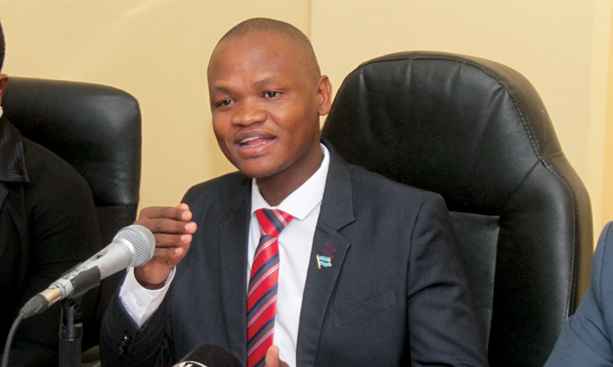Minister of Agriculture and Security Dr Edwin Dikoloti has allayed fears that government has already given the ailing national beef producer – Botswana Meat Commission (BMC) to a private company, following an announcement in the budget speech recently.
He, however, confirmed that government is looking at some companies to identify a suitable partner to engage on a management contract to turn around BMF fortunes. “We are looking at certain reputable companies but we are not limiting ourselves to them and we have not identified any particular company,” he said on the sidelines of the press briefing he addressed on Friday.
He said his ministry is working with Public Enterprises Evaluation and Privatisation Agency (PEEPA) to identify a suitable management company for BMC. “The company will be tasked with the responsibility to, among other things, analyze the business model, review operations, and marketing concepts of the commission as well as appraise the competencies of personnel fit for purpose to make it profitable and economically viable,” he said.
BMC has not been performing well owing farmers millions of Pula with some attaching some its assets. Dr Dikoloti highlighted that it is important to put in place corrective measures to stabilize the performance of BMC to benefit Batswana at large. BMC financial woes started as back as 2005/06 due to operational losses and by 2012 they had accumulated debt of more than P700 million due to borrowing heavily from both private financial institutions and the government.
With the BMC failing to pay farmers on time and drought threating to wipe off their cattle, last year government introduced export of life. This was a pilot project which meant to assist farmers to sell their cattle to the market in the region so as to avoid losing them due to drought and the dispensation is still on going and is scheduled for termination and review by end of March this year. “The initiative has helped farmers in different ways especially income earnings from sales of better prices for life cattle in the region,” he said.
Dikoloti added that the scheme created market for cattle which could not be absorbed locally, resulting in improved suppliers’ payments and turnaround time and evading high cattle mortalities due to drought.
A total of 20173 cattle from 88 farmers/agents were issued with export permits to sell their cattle outside the country. Dikoloti revealed that a total of 19 983 cattle were sold to the South African market and 190 to Namibia. He said that small holder cattle producers sold to agents for export as they didn’t have capacity to sell directly outside.
Drought relief
Last year as part of government to assist farmers to avert possible loss of livestock due to drought MoA introduced a 35% subsidy on livestock feed and Dr Dikoloti announced that it will continue until end of June this year. According to Dikoloti, a total of 55 577 farmers have benefited from the subsidy, out of which about 27% were young farmers.
“The drought subsidy was allocated P102 million and as at 14 February 2020, a total of over P90 million has been paid to various private suppliers participating in the subsidy,” he revealed.
